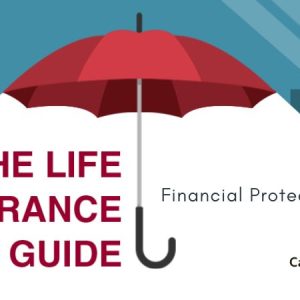Introduction to Auto and Renters Insurance
Are you ready to safeguard your valuable possessions and embrace worry-free living? Look no further! In this article, we’ll delve into the world of auto and renters insurance, exploring their significance, benefits, and coverage options. By the end, you’ll have a comprehensive understanding of how these insurance policies can shield you from unexpected financial burdens.
Defining Auto and Renters Insurance
Auto insurance serves as a protective shield for your vehicle, offering coverage against potential damages, accidents, or theft. On the other hand, renters insurance is designed to safeguard your personal belongings within a rented property from unforeseen perils, such as fire, vandalism, or theft.
The Importance of Auto and Renters Insurance
Why is it crucial to have these insurance policies in place? Well, picture this: You’re driving on the highway, when suddenly, a reckless driver crashes into your car. Without auto insurance, you’d be left solely responsible for the costly repairs. Similarly, imagine a fire ravaging your apartment, leaving you with nothing but ashes. Without renters insurance, you’d be burdened with the daunting task of replacing your belongings from scratch.
By investing in auto and renters insurance, you gain peace of mind, knowing that you’re safeguarded against unforeseen circumstances. These policies provide financial protection, ensuring that you won’t face an overwhelming burden if the unexpected occurs.
Understanding the Benefits and Coverage Options
Auto and renters insurance offer a wide range of benefits and coverage options tailored to your specific needs. Auto insurance typically covers liability (in case you’re at fault in an accident), collision (for damages to your vehicle), comprehensive (protecting against non-collision incidents), and uninsured/underinsured motorist coverage (in case the other driver doesn’t have sufficient insurance).
On the other hand, renters insurance covers personal property (such as furniture, electronics, and clothing), liability (in case someone gets injured in your rented property), additional living expenses (if your place becomes uninhabitable), and even medical payments.
Stay tuned as we dive deeper into the nuances of auto and renters insurance policies, helping you navigate through the various types of coverage, factors affecting premiums, and tips for finding the best insurance policies. Together, we’ll ensure that you’re equipped with the knowledge to make informed decisions and protect what matters most.
Understanding Auto Insurance
Exploring the Types of Auto Insurance Policies
When it comes to auto insurance, there is a myriad of policy options available to meet your specific needs. Let’s explore some of the common types:
Liability Insurance
Liability insurance is a fundamental component of auto insurance. It covers the costs if you’re at fault in an accident, including property damage and bodily injuries sustained by the other party involved. This coverage is often required by law.
Collision Insurance
Collision insurance provides coverage for damages to your vehicle resulting from a collision with another vehicle or object, regardless of fault. It helps cover the repair or replacement costs of your car.
Comprehensive Insurance
Comprehensive insurance protects your vehicle against non-collision incidents, such as theft, vandalism, natural disasters, or damage caused by falling objects. It provides coverage for repairs or replacement of your car, ensuring you’re protected from various unforeseen events.
Uninsured/Underinsured Motorist Coverage
This coverage comes into play if you’re involved in an accident with a driver who doesn’t have insurance or lacks sufficient coverage. It helps cover your medical expenses, property damage, and other costs resulting from the incident.
Factors Affecting Auto Insurance Premiums
Several factors influence the cost of auto insurance premiums. Insurance providers consider these factors when determining the risk associated with insuring you as a driver. Some key factors include:
Driving History and Record
Insurance companies assess your driving history, including any accidents, traffic violations, or previous claims. A clean driving record typically translates into lower premiums.
Vehicle Type and Usage
The make, model, age, and usage of your vehicle can impact your insurance rates. Expensive or high-performance cars may have higher premiums due to increased repair costs or theft risks.
Location
Your location plays a significant role in determining your premiums. Areas with higher crime rates or a higher likelihood of accidents may result in higher insurance costs.
Tips for Finding the Best Auto Insurance Policy
Finding the right auto insurance policy can seem overwhelming, but with these handy tips, you’ll be on your way to securing the best coverage:
Shop Around and Compare Quotes
Don’t settle for the first insurance offer that comes your way. Take the time to research and compare quotes from multiple insurance providers. This way, you can find the most competitive rates and coverage options that align with your needs.
Consider Deductibles and Coverage Limits
Evaluate your financial situation and determine the deductibles and coverage limits that work best for you. A higher deductible may lower your premiums, but ensure it’s an amount you can comfortably afford to pay out of pocket in case of a claim.
Look for Discounts
Insurance companies often offer various discounts that can help reduce your premiums. These may include safe driver discounts, bundling discounts (such as combining auto and renters insurance), or discounts for certain safety features in your vehicle.
With a solid understanding of auto insurance policies, the factors influencing premiums, and some useful tips for finding the best coverage, you’re well-equipped to make informed decisions. Next, let’s delve into the world of renters insurance and discover how it can protect your personal belongings.
Understanding Renters Insurance
Renters insurance is often overlooked but holds immense importance in protecting your personal belongings and providing you with peace of mind. Let’s dive into the details of why renters insurance is a must-have and explore the coverage options and benefits it offers. Additionally, we’ll provide valuable tips to help you select the right renters insurance policy for your needs.
Explaining the Importance of Renters Insurance
Have you ever wondered what would happen if your apartment was burglarized or if a fire destroyed all your possessions? These unfortunate events can occur unexpectedly, leaving you devastated and financially burdened. This is where renters insurance comes to the rescue.
Renters insurance offers protection for your personal property in the event of theft, fire, vandalism, or other covered incidents. It ensures that you won’t bear the full financial burden of replacing your belongings if the worst happens. Additionally, renters insurance provides liability coverage, protecting you if someone gets injured in your rented property and holds you responsible.
Coverage Options and Benefits of Renters Insurance
Renters insurance policies typically offer two primary types of coverage: personal property coverage and liability coverage.
1. Personal Property Coverage: This coverage protects your belongings, including furniture, electronics, appliances, clothing, and more. In the event of covered incidents like theft, fire, or water damage, your insurance policy will provide funds to replace or repair your damaged or stolen items. It’s important to assess the value of your belongings accurately to ensure you have sufficient coverage.
2. Liability Coverage: Liability coverage is equally crucial. If someone gets injured in your rented property and holds you responsible, renters insurance can cover legal expenses, medical bills, and potential lawsuits. This coverage acts as a safety net, protecting your financial well-being in case of unforeseen accidents or incidents.
Tips for Selecting the Right Renters Insurance Policy
Choosing the right renters insurance policy can be overwhelming, but with the following tips, you’ll be able to make an informed decision:
1. Evaluate Your Coverage Needs: Take inventory of your belongings and estimate their value to determine the appropriate amount of personal property coverage you require. Consider any unique or high-value items that might need additional coverage.
2. Understand Policy Limits and Deductibles: Familiarize yourself with the coverage limits and deductibles specified in the policy. Ensure they align with your needs and financial capabilities.
3. Review Additional Coverage Options: Some policies offer add-ons or endorsements for specific items or situations, such as jewelry, electronics, or natural disasters. Assess whether you need any additional coverage based on your circumstances.
4. Compare Insurance Providers: Shop around and compare quotes from different insurance providers. Consider factors like reputation, customer service, and financial stability to ensure you choose a reliable insurer.
By understanding the importance of renters insurance, exploring coverage options and benefits, and following these tips, you’ll be equipped to select the right policy that provides comprehensive protection for your belongings and liability coverage for peace of mind. Stay tuned as we delve deeper into the world of auto and renters insurance, uncovering the similarities, differences, and how bundling these policies can lead to potential savings.
Comparing Auto and Renters Insurance Policies
Exploring Similarities and Differences
While auto and renters insurance serve different purposes, they share some similarities. Both policies offer financial protection and peace of mind, ensuring that you are not left with hefty expenses in the event of an unfortunate incident. However, there are notable differences between these two types of insurance.
Auto insurance primarily focuses on protecting your vehicle and covers liabilities related to accidents, damages, or theft. Renters insurance, on the other hand, is designed to safeguard your personal belongings within a rented property from various perils.
Factors to Consider when Comparing Policies
When comparing auto and renters insurance policies, it’s important to consider several factors. Firstly, assess the coverage limits and deductibles associated with each policy. Higher coverage limits ensure that you are adequately protected in case of significant losses, while deductibles determine the amount you need to pay out of pocket before the insurance kicks in.
Additionally, evaluate the types of coverage included in each policy. For auto insurance, this may include liability, collision, comprehensive, and uninsured/underinsured motorist coverage. Renters insurance typically covers personal property, liability, additional living expenses, and medical payments. Determine which coverage options are essential for your specific needs.
Take into account the reputation and financial stability of the insurance provider. Look for well-established companies with a strong track record of customer satisfaction and prompt claims processing.
Saving Money through Bundling
If you have both a car and a rented property, bundling your auto and renters insurance policies can lead to significant cost savings. Insurance providers often offer discounts when you combine multiple policies with them. By consolidating your insurance needs, you can enjoy reduced premiums while simplifying your insurance management.
When comparing bundled policies, ensure that the coverage and limits meet your requirements. Take into consideration any additional perks, such as roadside assistance or identity theft protection, that may be included in the bundled package.
By carefully evaluating the similarities, differences, and various factors between auto and renters insurance policies, you can make an informed decision that suits your unique circumstances. Stay tuned as we reveal expert tips for saving money on auto and renters insurance, ensuring that you maximize your coverage while minimizing your expenses.
Tips for Saving Money on Auto and Renters Insurance
Exploring Various Discounts and Cost-Saving Strategies
When it comes to auto and renters insurance, saving money without compromising coverage is a top priority. Thankfully, there are numerous discounts and cost-saving strategies available to help you achieve just that.
1. Bundle and Save: Consider bundling your auto and renters insurance policies with the same provider. Many insurance companies offer attractive discounts for combining coverage, allowing you to save significantly on premiums.
2. Good Driver Discounts: If you have a clean driving record, you may be eligible for a good driver discount. Insurance providers often reward safe driving habits, so be sure to inquire about potential savings based on your driving history.
3. Safety Features: Equipping your vehicle with safety features, such as anti-lock brakes, airbags, and anti-theft systems, can lead to substantial discounts on your auto insurance premiums. Similarly, installing smoke detectors, security alarms, or fire sprinklers in your rented property can lower your renters insurance costs.
4. Pay in Full: Opting to pay your insurance premiums in full upfront instead of in monthly installments may help you save money in the long run. Insurance companies often offer discounts for paying the full annual premium at once.
How Maintaining a Good Credit Score Can Lower Premiums
Believe it or not, your credit score plays a role in determining your insurance premiums. Insurance providers consider individuals with higher credit scores to be more financially responsible, leading to lower premiums. To maintain a good credit score or improve it, pay your bills on time, keep credit card balances low, and review your credit report regularly for any errors that may negatively impact your score.
Tips for Negotiating with Insurance Providers
Remember, insurance premiums aren’t set in stone; there’s room for negotiation. Here are a few tips to help you secure the best rates:
1. Shop Around: Obtain quotes from multiple insurance providers and compare their offerings. This will give you leverage when negotiating with your preferred provider.
2. Highlight Your Loyalty: If you’ve been a long-term customer with a clean claims history, mention your loyalty when negotiating. Insurance companies may be willing to offer discounts to retain you as a valued customer.
3. Discuss Your Circumstances: If you’ve recently made improvements to your vehicle’s safety features or installed additional security measures in your rented property, inform your insurance provider. These enhancements may qualify you for reduced premiums.
By implementing these tips and exploring various cost-saving strategies, you can protect your assets and enjoy the benefits of auto and renters insurance while keeping more money in your pocket.
Stay tuned for the upcoming sections, where we’ll address frequently asked questions and provide further insights into the world of auto and renters insurance.
Tips for Saving Money on Auto and Renters Insurance
When it comes to insurance, finding the right coverage at an affordable price is key. Luckily, there are several ways you can save money on your auto and renters insurance premiums. Let’s explore some valuable tips that can help you keep more cash in your pocket.
1. Shop Around and Compare Quotes
Don’t settle for the first insurance policy that comes your way. Take the time to shop around and compare quotes from different insurance providers. Each company may offer different rates and discounts, so it’s worth exploring your options. Consider reaching out to local agents or utilizing online comparison tools to find the best deals.
2. Bundle your Policies
Many insurance providers offer discounts when you bundle your auto and renters insurance policies together. By combining these coverages with the same company, you can often enjoy significant savings. Not only does bundling save you money, but it also simplifies the insurance process by having all your policies in one place.
3. Opt for Higher Deductibles
One effective way to lower your insurance premiums is by choosing higher deductibles. A deductible is the amount you pay out of pocket before your insurance coverage kicks in. By opting for a higher deductible, you can reduce your premiums. Just make sure you have enough funds set aside to cover the deductible in case of an unfortunate event.
4. Maintain a Good Credit Score
Believe it or not, your credit score can impact your insurance premiums. Insurance providers often use credit-based insurance scores as a factor in determining rates. Maintaining a good credit score demonstrates financial responsibility and can lead to lower premiums. Pay your bills on time, keep your credit utilization low, and monitor your credit report regularly to ensure accuracy.
5. Take Advantage of Discounts
Insurance companies offer various discounts that can help you save money. Common discounts include safe driver discounts, multi-policy discounts, good student discounts, and discounts for installing safety features in your vehicle or home. Be sure to ask your insurance provider about available discounts and take advantage of any that you qualify for.
By implementing these money-saving tips, you can make your auto and renters insurance more affordable without compromising on coverage. Remember, insurance is an investment in your peace of mind and financial protection. So, take control of your insurance costs and enjoy the benefits of comprehensive coverage at a reasonable price.





